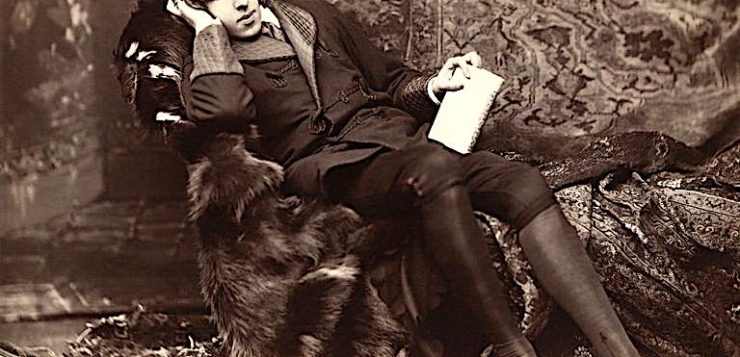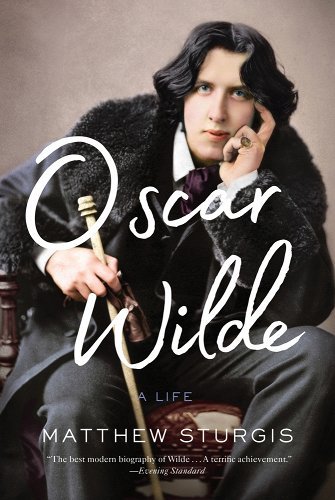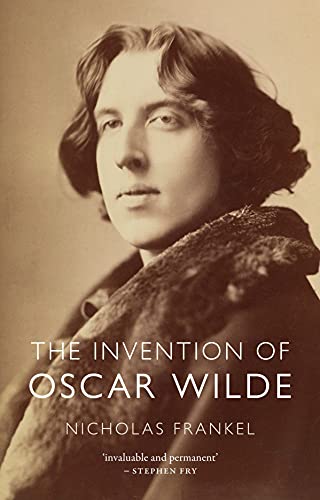FOR A 19TH-CENTURY author, Oscar Wilde is astonishingly present in today’s culture—far more mentioned and quoted than even a perennial favorite like Mark Twain. This, I believe, is due to a combination of factors. Wilde was an important artist who had a dramatic life, and his personal drama and his writing are intertwined in ways that seem to illuminate each other. Indeed, while Wilde famously said (or was quoted as saying) that he put his genius into his life and only his talent into his work, I would argue that the two together can be seen as a kind of Gesamtkunstwerk, with many thematic connections between Wilde’s self-creation and his artistic creations. Add to this Wilde’s ambiguousness on many points—his nationality (Irish or English), his religion (Catholic, Protestant, or “Pagan”), his politics (socialist or not), his sexuality, and so on, and the result is a many-faceted and elusive subject. Consequently, there is never a year without new books about Wilde, each generally emphasizing (or over-emphasizing) the importance of one of his many aspects.
Last year was no exception. Two books came out that attempted to encompass the whole of Wilde’s story: Matthew Sturgis’ Oscar Wilde (which appeared three years earlier in the UK) and Nicholas Frankel’s The Invention of Oscar Wilde. Both Sturgis and Frankel are distinguished writers, Sturgis as a biographer of fin-de-siècle artistic figures (in particular Aubrey Beardsley) and Frankel as a Wilde scholar.
The result is an extremely detailed and cautious work, as monumental (and monumentally long) as Ellmann’s. It contains a large amount of information that was not previously available to the lay public. This is especially true with respect to Wilde’s trials, but the book contains countless details that will fascinate the Wilde-obsessed. One that particularly amazed me, for instance, is the fact (revealed in a footnote) that Wilde and his wife Constance visited John Singer Sargent’s studio in Paris on their honeymoon and watched as Sargent painted his masterpiece Madame X. Oh, to have been a fly on the wall during that visit!
Sturgis’ method also results in an intelligent reframing of many incidents. An example is Wilde’s first famous (reported) witticism: “I find it harder and harder every day to live up to my blue china.” Rather than seeing this just as an example of Wilde’s famous wit, Sturgis discusses it as a youthful experiment in epigram, an ironic distillation of his teacher Ruskin’s views, and an example of a pose that Wilde was trying out at Oxford. This is illuminating, but it also points to a problem. The remark was undoubtedly a youthful experiment—but one that only Wilde could have made. By refusing to mythologize Wilde, Sturgis also refuses to commit to a portrait of him. He corrects Ellmann, but does he offer a satisfying alternative? As its rather weak conclusion suggests, the book tells you a great deal about Oscar Wilde but never explains why he’s worth so much attention.

Frankel’s book, on the other hand, should appeal to a much wider readership, from those faintly curious about Wilde to those who have read Ellmann more than once. The Invention of Oscar Wilde is not organized as an argument with other scholars. Instead, Frankel simply cites Ellmann and Sturgis when agreeing with them, as well as other scholars, including Neil McKenna, whose 2003 The Secret Life of Oscar Wilde—an attempt to recenter Wilde’s homosexuality in his story, and undoubtedly the most openly gay biography of Wilde—is often unfairly overlooked. Frankel takes as his subject the relation between Wilde’s life and literary work. He discusses Wilde’s imaginative self-invention(s), saying on the first page that “his life now reads like the greatest of his works.” He also spends considerable time on the ways in which the works reflect and illuminate Wilde’s life, in particular the way in which his double life as a husband-father and as a lover of men—and his status as a criminal under Victorian law—are reflected in the path of his thinking from paradox to subversiveness.
The book abounds in perceptive remarks while also offering appropriately skeptical readings of evidence, even using Wilde’s letters to cast doubt on the account of his relationship with Lord Alfred Douglas given in De Profundis. And it provides clear resolutions of disputed issues. For example, rather than entering into the endless but insignificant debate about whether Wilde converted to Catholicism at the end, Frankel refers to his lifelong “flirtations with Roman Catholicism” and remarks simply that “some believe that he experienced a deathbed conversion in his final moments.”
Given Wilde’s importance in the development of “the twentieth century notion of ‘the homosexual’ and his proud defense from the dock of ‘the love that dare not speak its name,’ [which]constitutes an epochal moment in the history of modern homosexuality,” I recommend Frankel’s excellent The Invention of Oscar Wilde to every LGBT reader. For readers already obsessed with Oscar Wilde, I can also endorse Sturgis’ biography. It’s an epic read, but if you want to know everything there is to know about Oscar Wilde’s life, your journey will be richly rewarded.
Andrew Lear is the founder of Oscar Wilde Tours and We Were There, a nonprofit organization focused on LGBT history.







